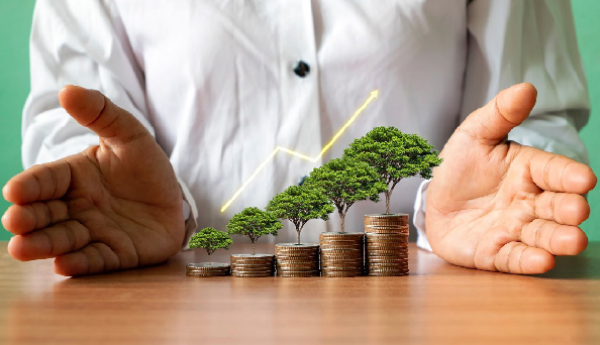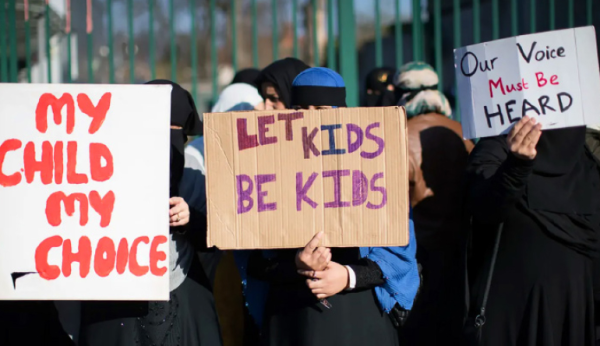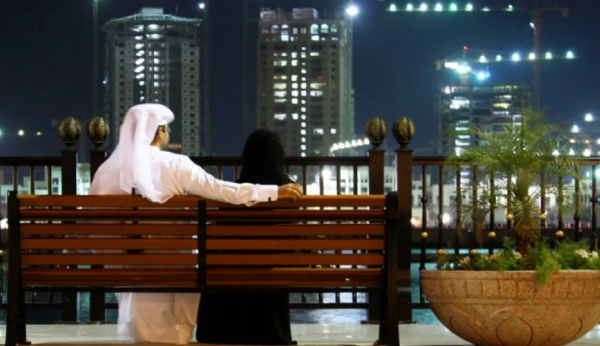Immense Potential Sector in Green Economy
Immense Potential Sector in Green Economy
Immense Potential Sector in Green Economy

The World Meteorological Organization (WMO) of the United Nations predicts that the average world temperature will rise by 3 to 5 degrees Celsius this century. Will this world, however, gradually suffer as a result of climate change? The remaining time is slipping away. The nation experiences catastrophic catastrophes every year. One of the nations impacted by climate change is Bangladesh. In this situation, focusing on a green economy to achieve green growth has grown to be a significant obstacle.
Bangladesh is now seeing the effects of the planet’s temperature progressively rising as a result of the abrupt change in climate. It is vital to note that the Bay of Bengal has strategically grown to be a significant center of world politics and commerce, making involvement in initiatives like IPS, QUAD, AUKUS, and BRI seem like a chess piece to others.
Bangladesh has maintained a neutral stance in this area in accordance with its foreign policy, although the effects of climate change are not abating very quickly. A green economy is given special importance in the Rainbow economy in order to boost the true growth of any nation’s economy. The environment is referred to by the green suffix of the phrase “green economy,” which denotes an eco-friendly economy. An economy that reduces environmental dangers and ecological scarcity while promoting human well-being and social fairness is known as a “green economy.” Additionally, a green economy will guarantee social inclusion, efficient resource use, and a low-carbon economy.
Bangladesh has been identified as one of the nations most at risk from climate change because of its position. Floods, salinity, cyclones, and tsunamis are all common occurrences. Furthermore, there are variances in the typical seasonal changing pattern. Around the world, there is a lot of environmental concern.
This awful scenario has been brought about by all anti-environmental actions, including the vast emission of greenhouse gases, due to the utilization of natural resources for economic growth. The heartbreaking plea to “Save Our Planet” to avert this perilous predicament gave rise to the idea and framework of the green economy.
In the report ‘Turn Down the Heat: Climate Regional Impact and Case for Resilience’ on the negative consequences of global temperature increase and climate change, the World Bank makes reference to Bangladesh. 3.45 million Bangladeshi homes were devastated by Cyclone Sidr in 2007. Twelve thousand four hundred and eighty crore were lost due to that disaster.
A three-meter high tide is expected to reach the coast of such a cyclone by the year 2050 as it grows stronger. It may cover the dwellings of 90 million people. Additionally, 40% of Bangladesh’s southwest region will be devastated if sea levels on its coast raise by 65 centimeters by 2080. Loss of agricultural products is extremely probable. Has progress been made in the fields of waste management, agrochemicals, tannery, soil erosion, river erosion, and land fertility up to this point? The only answer, though, is the potential green economy.
Be aware that one of the many facets of the green economy is green energy. One of the areas of economic development is the energy sector. Fuel sources include coal, mineral oil, and natural gas. The global energy crisis has become the height of dread due to its continuing and careless exploitation.
The next category is “green employment” which describes work done in fields that are beneficial to the environment, especially those that broadly relate to renewable energy. Green investment: The secret is to put money into eco-friendly businesses, organizations, and endeavors. Green transportation is the transformation of our current transportation infrastructure utilizing environmentally friendly fuels.
Bangladesh performs a very minor part in the worldwide effort to combat environmental pollution or global warming. The nation’s survival has been put in danger by rising environmental damage, global warming, and resource depletion. The environment and natural resources have multiplied compared to earlier decades, which has resulted in deforestation and ecological imbalance.
We are quite a ways from the need for a nation to have a minimum of 25% of its land covered in forest. But let’s not overlook the fact that our nation has more excellent seasonal and biological diversity than other nations. By viewing the agriculture sector’s restricted potential as a challenge, we may more easily combat the world economic downturn. The implementation will have restrictions. But it goes without saying that I will achieve my goals as a result.
To implement the 100-year master plan “Bangladesh Delta Plan-2100” and address the concerns of global warming in Bangladesh, a 12-member “Delta Governance Council” with the Prime Minister as the head has been constituted. Without a doubt, this is a ground-breaking and admirable endeavor to address the issue of climate change. It must be kept in mind that daily temperature increases are destroying the atmosphere’s delicate balance.
That much has been established: creating a green economy may be the most effective strategy. The implementation of a global green economy, however, has definite obstacles, and there are several discussions on its geographical applicability. Furthermore, industrialized nations’ words and deeds are very different from one another, and their partisan mentality is green.
There are no fewer than infinite doubts being raised concerning the economy’s actual implementation and path. This is due to the fact that wealthy nations are primarily accountable for carbon emissions, but there are also shining examples of disregarding the many international regulations or accords on this subject. So it makes sense to think that the dream of a green economy will be dashed.
However, if wanted, it can be put into practice. Rich nations ought to be prepared to step up in this situation with genuine goodwill. In this situation, developing nations should first and foremost get unrestricted technological and financial help to enable equal participation. It suggests that it is crucial to ensure equity in the green economy since, in that case, the wealthy nations will only speak, and the developing nations will just do as they are told. The green economy may then encounter comparable assertions.
Bangladesh in particular is being regarded more. Because it is almost at the top of the list of the harms brought on by climate change. The implementation of the green economy and the consideration of the previously mentioned variables should be prioritized in order to prevent any disruption of the nation’s trade potential with economic growth and poverty alleviation initiatives. In order to execute the green economy effectively,
A number of actions should be taken in this regard, such as the creation and publication of sustainable development strategies, action plans, laws, and regulations; approval of the Renewable Energy Authority Act; the deployment of renewable energy systems; and the Bangladesh Bank’s issuance of green banking policies on February 27, 2011.
Several nations are currently prioritizing green economic policies on a global scale. This green economy is becoming a significant alternative to the traditional economy as a result of the pressing demand for time. As a result of the green economy’s ability to eradicate inequality, decrease poverty, and promote waste management,
Additionally, resource scarcity reduces a variety of environmental concerns as well as threats to human health. Be kind to others. And the entire globe is focusing on the green economy to provide a solid foundation for sustainable development. After all, sustainable development requires both the environment and the economy to function. In Bangladesh, which is centered on agriculture, getting the green light for the green economy is not difficult given the existence of the blue economy’s green potential.
The author of this article is studying at the Department of Political Science, University of Chittagong. The author can be reached at [email protected]
You May Add Comment Now.

Reply
 Mohammad Maruf Mozumder
Mohammad Maruf Mozumder 








